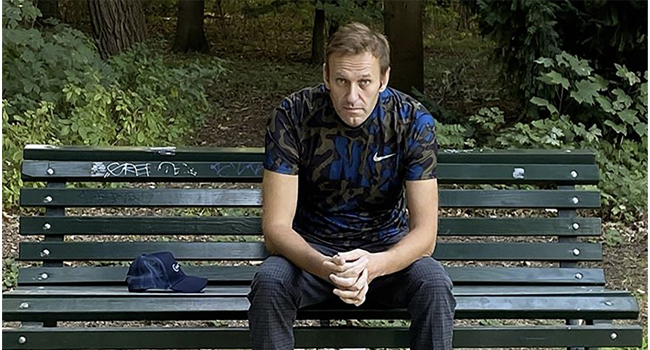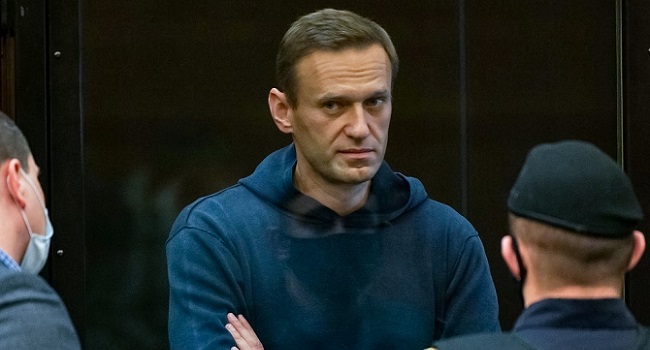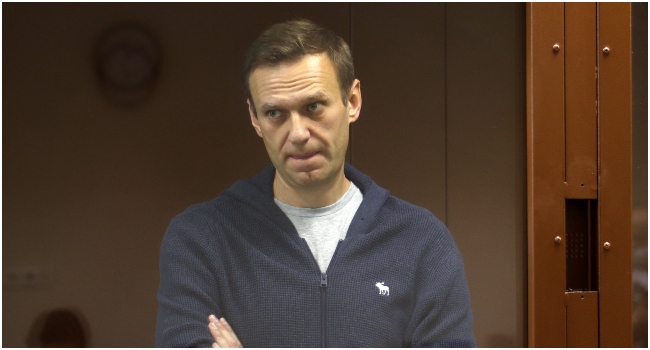
Russia’s penitentiary service said on Monday it was transferring ailing Kremlin critic Alexei Navalny to a prison hospital, as the EU warned it would hold Moscow responsible for the state of his health.
The United States on Sunday threatened Russia with “consequences” if President Vladimir Putin’s major domestic opponent — who launched a hunger strike three weeks ago — dies in jail, with Navalny’s private doctors warning at the weekend he could pass away at “any minute”.
Russia’s prison service, which has barred Navalny’s own medical team from visiting him, said its doctors had decided to move him to a medical facility at another penal colony outside Moscow.
But it insisted the anti-corruption campaigner’s condition was “satisfactory”, and said he was taking vitamin supplements as part of medical treatment.
Fears over Navalny’s fate have added more fuel to soaring tensions between Moscow and the West over a build-up of Russian troops along the border with Ukraine and a spiralling diplomatic row with EU member state the Czech Republic.
EU foreign policy chief Josep Borrell said the bloc held the Russian authorities “responsible for the health situation of Mr Navalny” as foreign ministers from its 27 nations held virtual talks.

Borrell demanded that Moscow allow doctors that Navalny trusts to visit him after his move to the hospital.
The Russian authorities “are responsible for Navalny’s safety and health and we will hold them to account for it”, he said.
READ ALSO: France To Impose Quarantine On Arrivals From Four Countries
German Foreign Minister Heiko Maas said it was “good news” that Navalny “finally seems to be receiving urgently needed medical care”.
But he insisted the bloc would “follow this very closely to see if this is the case”.
The Kremlin dismissed the outcry from foreign leaders over the condition of the 44-year-old who last year came close to death after being poisoned with the nerve agent Novichok.
“The health of convicts in the Russia Federation cannot and should not be a topic concerning them,” said Putin’s spokesman Dmitry Peskov.
Navalny was arrested in Russia in January after returning from treatment in Germany for the nerve agent poisoning in August he says was carried out by Moscow — accusations denied by Putin’s administration.
Sentenced to two-and-a-half years in prison for embezzlement, he began a hunger strike on March 31 demanding medical treatment for back pain and numbness to his hands and legs.
The EU in October sanctioned six Russian officials over the nerve agent attack, and in February sanctioned another four individuals over his arrest and sentencing.
France’s Foreign Minister Jean-Yves Le Drian said Sunday that those sanctions could be expanded.
Navalny’s supporters have called for a major protest across Russia on Wednesday to demand his release, hours after a state-of-the-nation address by Putin.
Russian police — who detained thousands during earlier protests over Navalny’s jailing — warned people not to demonstrate, saying officers would take “all necessary measures to maintain law and order”.
– ‘Red lines’ –
The fraught ties with Russia dominated the agenda as EU foreign ministers held their regular monthly meeting.
The top diplomats held talks with Kiev’s Foreign Minister Dmytro Kuleba over the major military build-up by Russia along Ukraine’s borders and a surge in fighting with Russian-backed separatists.
Borrell said that more than 150,000 Russian troops were now massed along Ukraine’s borders and in the annexed Crimea peninsula.
“It is the highest Russian military deployment at Ukrainian borders ever,” Borrell said.
Kiev has been battling Moscow-backed separatists in eastern Ukraine since 2014 and fighting intensified early this year, effectively shredding a ceasefire agreed last July.
Kuleba wrote on Twitter that he proposed a “step-by-step plan on how to discourage Moscow from further escalation”.
“Key element: preparing a new set of sectoral sanctions. Individual ones are not sufficient anymore,” he said.
Lithuania’s Foreign Minister Gabrielius Landsbergis insisted the EU should show it is willing to impose sanctions if Moscow crosses any more “red lines”.
But Borrell said there were currently no proposals for new sanctions against Russia.
EU foreign ministers are also set to be briefed on the new tensions between the Czech Republic and Russia.
Moscow on Sunday ordered out 20 Czech diplomats, the day after Prague announced it was expelling 18 Russian diplomats identified as secret agents of the SVR and GRU security services.
Czech authorities accused them of involvement in a deadly 2014 explosion on its soil at a military ammunition warehouse that killed two people.
Czech police said they were seeking two Russians in connection with the explosion and that the pair carried passports used by suspects in the poisoning of former Russian double agent Sergei Skripal in Britain in 2018.
The Kremlin slammed the Czech expulsions as “provocative and unfriendly”.
AFP



